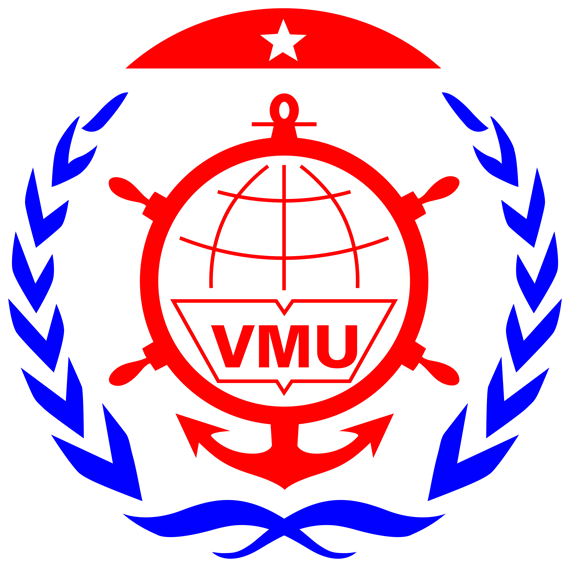1. Introduction
|
Program title: |
Bachelor of Finance and Banking Management |
|
Graduation degree: |
Bachelor's degree |
|
Study model: |
Full-time |
|
Total credits: |
134 |
|
Used language: |
Vietnamese |
|
Training duration: |
4 years (8 semesters) |
|
Responsible Falcuty: |
Falcuty of Management - Finance |
|
Website: |
|
|
Address: |
Room 122, 1st floor A4 building, Vietnam Maritime University 484 Lach Tray - Le Chan – Hai Phong |
The training program of Finance and Banking Management at Vietnam Maritime University is designed by the Faculty of Management - Finance, draws upon programs from many esteemed domestic and international universities. Regularly updated to align with industry needs and comply with regulations of the Ministry of Education & Training and Vietnam Maritime University, the program equips learners with the necessary knowledge, skills and attitudes. It meets the Vietnamese National Qualifications Framework and international standards, helps graduates have the capacity to join the 21st century workforce. Graduates of the program are capable of managing corporate finance, organizing and implementing banking operations; dynamic, creative, adaptable to all working environments, and able to compete with human resources in the Asia-Pacific region. Graduates can be in charge of finance and accounting in state agencies, enterprises, financial companies, banks, credit organizations or other financial institutions, and have the ability to continue studying for master's and doctoral degrees to become high-level experts in the field of finance and banking.
The Bachelor of Finance and Banking Management program at Vietnam Maritime University provides a comprehensive educational program from theory to practice, helping learners meet the challenges in the context of the 4.0 technology revolution and the digital economy.
2. Curriculum
The Bachelor of Finance and Banking Management program is organized into 08 semesters as follows:
During the 8 semesters, students study a comprehensive program combining theory and practice. In Semester I, students acquire fundamental knowledge and skills through Algebra; Marxist - Leninist Philosophy presents the views of Marxist - Leninist Philosophy. Microeconomics explains economic activities and business problems, while Monetary Finance deals with knowledge of monetary finance in financial activities. Introduction to Finance - Accounting provides knowledge about finance - accounting. Elective courses include: Office Informatics, Basic English 1 to develop computer skills and foreign language skills.
Semester II expands knowledge with subjects such as Probability and Statistics, which develop data analysis skills. Macroeconomics focuses on macroeconomic variables and policies to explain economic activities, while Political Economy provides perspective on Marxist-Leninist political economy. General Law introduces to law and Tax deals with the current tax laws. Basic English 2 and Soft Skills 1 are elective subjects to improve communication and language skills, while Environment and Environmental Protection generalizes knowledge about the environment and related phenomena.
Semester III delves deeper into the viewpoints in Scientific Socialism as well as quantifying the relationships between economic variables and forecasting in economics in the Econometrics section. Accounting Principles introduces the Vietnamese accounting knowledge. Basic English 3 improves foreign language skills and Basic Marketing provides knowledge of Marketing in the business environment. Elective subjects include: Public Economics and Corporate Culture.
Semester IV explores advanced subjects such as Business Accounting 1, which focuses on accounting practices in businesses. Financial Mathematics relates to calculating interest rates, project investment, and valuing popular securities, while Management presents the contents of management. Stock Market introduces the principles of trading and auctioning on the stock market. Insurance Principles explain insurance operations in businesses, and Ho Chi Minh Thought provides knowledge of Ho Chi Minh's thought. Elective subjects include Quality Management and Economic Law.
In semester V, students study the History of the Communist Party of Vietnam. The subject of Business Administration deals with the operations of business management. Meanwhile, Management Accounting applies management accounting to make business management decision. Banking Operations 1 delves into the practical operations of commercial banks. The internship in the TCH major provides practical experience in the fields of finance and banking. International Finance, Management Psychology, and English for TCH majors are elective subjects that help students improve their professional knowledge.
Semester VI focuses on specialized subjects such as Financial Management, which solve financial problems in the production and business activities. Financial statement analysis refers to the analysis of basic activities in corporate financial management, and the Central Bank deals with the knowledge of central bank in the operations of commercial banks. International payment provides knowledge about tools, methods, and documents of international payment. Securities analysis and investment solves problems of securities investment, while elective subjects such as Digital Banking, Human Resource Management, and Creative Startup supplement specialized knowledge for learners.
Semester VII include: The courses Credit Appraisal and Analysis and Banking Operations 2 handle and evaluate specialized banking operations. Banking transactions guide to conduct transactions with customers. Banking management evaluates the performance and management of commercial banks. Banking accounting applies accounting knowledge to accounting operations of banks.
In the final semester, students wconsolidate their knowledge through a Graduation Internship, and at the same time, apply theory to solve practical problems in the field of finance and banking through the implementation of the TCH Graduation Project.
